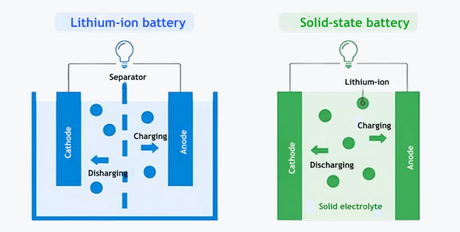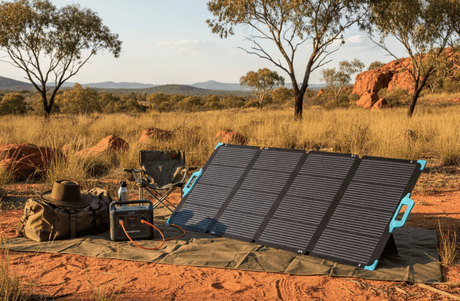Easy steps to take to use less energy in your home
When you go solar and start collecting energy on your own terms, you want to make sure you’re using all that hard-earned energy as efficiently as possible. Taking care of some prep work before installing your panels, such as investing in a home energy audit and improving your insulation, can bring big payouts in the long run. Here’s what you can do to improve your home’s energy efficiency.
Why should I care about energy efficiency?
Many people go solar because they want to lower their carbon footprint and demands for non-renewable resources, save money on utility bills, and reduce unnecessary energy consumption. Creating an energy efficient home has the same goals in mind.
But what exactly is energy efficiency?
To put it plainly, an energy efficient home will use less energy to achieve the same outcomes. In addition to being more sustainable, having a home that is designed to be energy efficient, means you won’t build an unnecessarily large system.
Some typical characteristics of energy efficient homes include airtight construction, proper insulation and sealing of windows and doors, high performing windows, LED lighting, energy efficient and Energy Star-rated appliances. Architects that design homes with energy efficiency in mind are also typically designed with their natural surroundings in mind. This could mean taking into consideration the natural light, existing flora, and climate in order to reduce energy usage.

What are some things I should do before installing solar panels?
Before you go solar, we recommend doing three things:
- Conduct a home energy audit, or home energy assessment, to determine what you can do to improve your home’s efficiency.
- Calculate your energy needs to properly size your system.
- Assess the age and condition of your roof if you plan on mounting panels to your roof.
- Conduct a home energy audit to determine what you can do to improve your home’s efficiency.
Hiring a professional to conduct a home energy audit should be the first step you take before installing or sizing a solar installation to determine how you can make sure your home is using energy as efficiently as possible. A home energy audit is a simple and powerful way to find out where your home is losing energy and what steps you can take to improve its efficiency.
- Calculate your energy needs to properly size your system.
Once you make the necessary home energy efficiency improvements, then you should take the time to calculate your new energy needs and properly size your system. If you underbuild your solar installation, your system won’t be able to meet your energy needs. If you overbuild your solar installation, you risk wasting thousands of dollars on components you don’t even need.
To create the perfectly sized system, we recommend using the Renogy solar panel calculator. All you need to do is enter the total watts your electronics will consume, how long you plan on running your appliances, your charge controller efficiency, and average sun hours per day. The solar panel calculator will then be able to tell you the minimum and recommended system size you should install.
- Assess the age and condition of your roof if you plan on mounting panels to your roof.
Before mounting any solar panels to your roof, you’ll want to make sure it’s in suitable shape. Replacing your roof before installing solar means you won’t have to tear everything out just a few years into having your installation, which will save you lots of money in the long run. A good rule of thumb is if your roof is five to 10 years away from the end of its lifespan, you’ll want to replace your roof before installing solar. Every roofing material has a slightly different lifespan so consult the specifications of your specific roofing material. As some general guidelines, clay tile, slate, and copper roofs can last up to 50 years, wood shake roofs have about a 30 year lifespan, and cement shingles last about 20 years.
What exactly is a home energy audit?
A home energy audit gives you an accurate understanding of how much energy your home uses, where it is losing energy, and what fixes you should prioritize making to improve its efficiency. When a home energy auditor comes to your house, they will conduct a thorough assessment and may use a variety of tools to detect areas of energy loss such as surface thermometers, furnace efficiency meters, thermographic scans, and blower doors.
How can I be prepared for a home energy audit?
To make the most out of your energy audit, we recommend doing a little prep work.
- Prepare a summary of any known problem areas, such as drafty rooms or windows.
- Print out your monthly energy bills.
- Look up what your typical thermostat settings for summer and winter are.
How can I make my home more energy efficient?
- Conduct a professional home energy audit! As we previously noted, a home energy assessment gives you an accurate picture of where your home is losing the most energy and what improvements you should make.
- Improve your home’s insulation. Closing up those gaps and adding insulation can save up to 10% on home heating and cooling costs. Uninsulated attics for example can lose plenty of heat in the winter. By doing the legwork to properly insulate your home, you won’t be losing your heating or cooling to the elements. Windows and doors are also big culprits for air leaks.
- Replace your old, drafty windows. Single-pane windows can also lose a lot of heat during the winter. Double pane windows are much better at holding in the heat. If you’re not ready to replace your windows, you can hang thermal curtains, closing them at night and opening them up during the day when it’s sunny out to let in naturally warming sunlight.
- Upgrade your appliances. Be sure to look for appliances that are Energy Star-rated if you have older appliances you plan on replacing. These appliances may have higher upfront costs, but they’ll save you lots of money in the long run.
- Invest in a tankless water heater. Tankless water heaters heat water directly without the use of a storage tank. This means they use much less energy. If you have a traditional water heater and aren’t ready to replace it, you can lower the thermostat to make sure you’re not wasting money heating it to a temperature you don’t even use.
- Tune Up Your HVAC. Heating and cooling costs are one of the biggest expenses of home ownership. Invest in an annual tune-up of your heating and cooling system, and you’ll ensure your furnace and A/C are running at maximum efficiency.
- Install a programmable thermostat. Programming your thermostat to automatically run cooler during the workday when you’re gone will prevent you from unnecessarily overheating your home.
- Make sure your lightbulbs are LED’s. Install highly-efficient and long-lasting LED light bulbs throughout your home. LED bulbs last 15 to 25 times longer than traditional incandescent bulbs.
- Mix up your laundry practices. Washing machines and dryers also use a lot of energy. To lower those energy demands of doing laundry, try washing your clothes in fuller loads and on lower settings. Instead of operating your dryer, you can also hang dry your clothes.
Conclusion
Spending the money to improve your home’s energy efficiency may feel like wasted money or an unnecessary step, but improving how well your home uses the energy collected by your solar panels will pay off in the long run. Not only will you be able to build a smaller installation, saving you thousands of Australian dollars on components, but you’ll also have the peace of mind knowing that you’re living the greenest, lowest impact lifestyle that you can.










![What Is a DC to DC Battery Charger [Comprehensive Guide]](http://au.renogy.com/cdn/shop/articles/IMG_3829_bd86de74-31d6-49fd-b9d5-265bb723091d.jpg?v=1757582605&width=460)